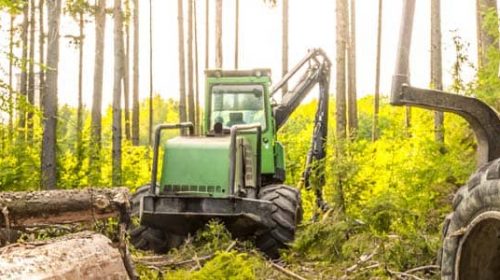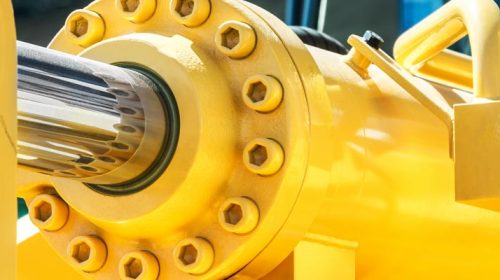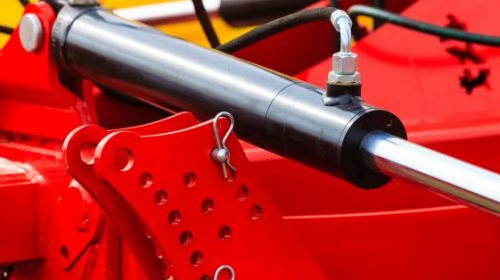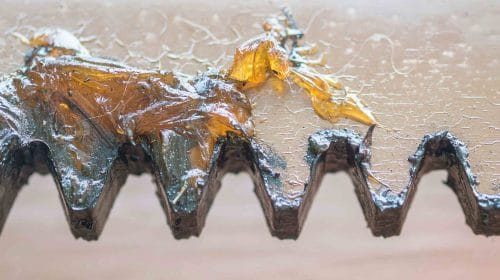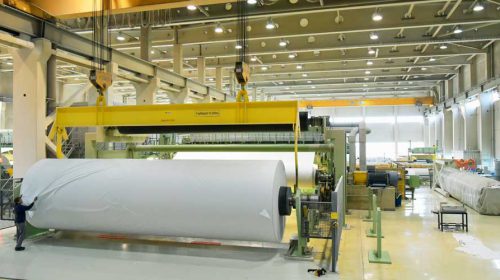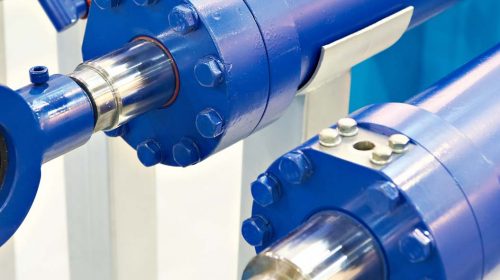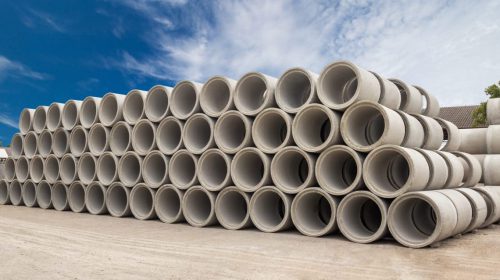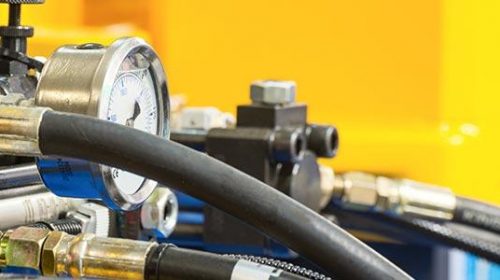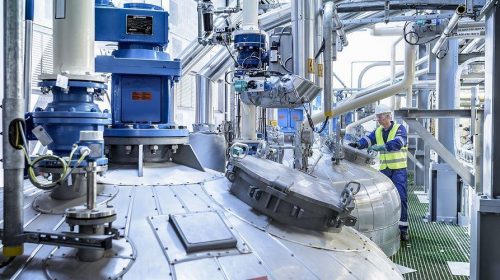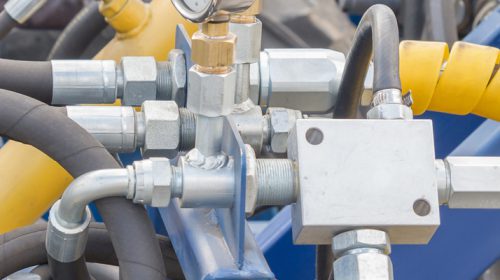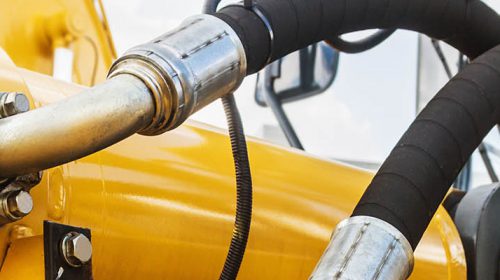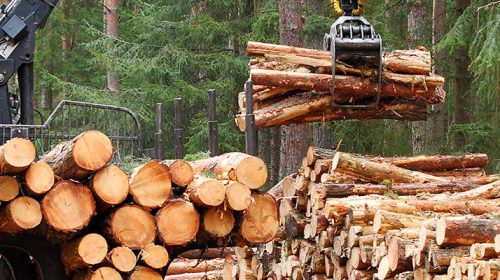Q8 Estin S is an ester-based Fire-Resistant Hydraulic Fluid (HFD-U) that, thanks to its Factory Mutual certification and approvals by hydraulic system manufacturers, its an ideal product for the steel industry, in addition it is readily biodegradable.
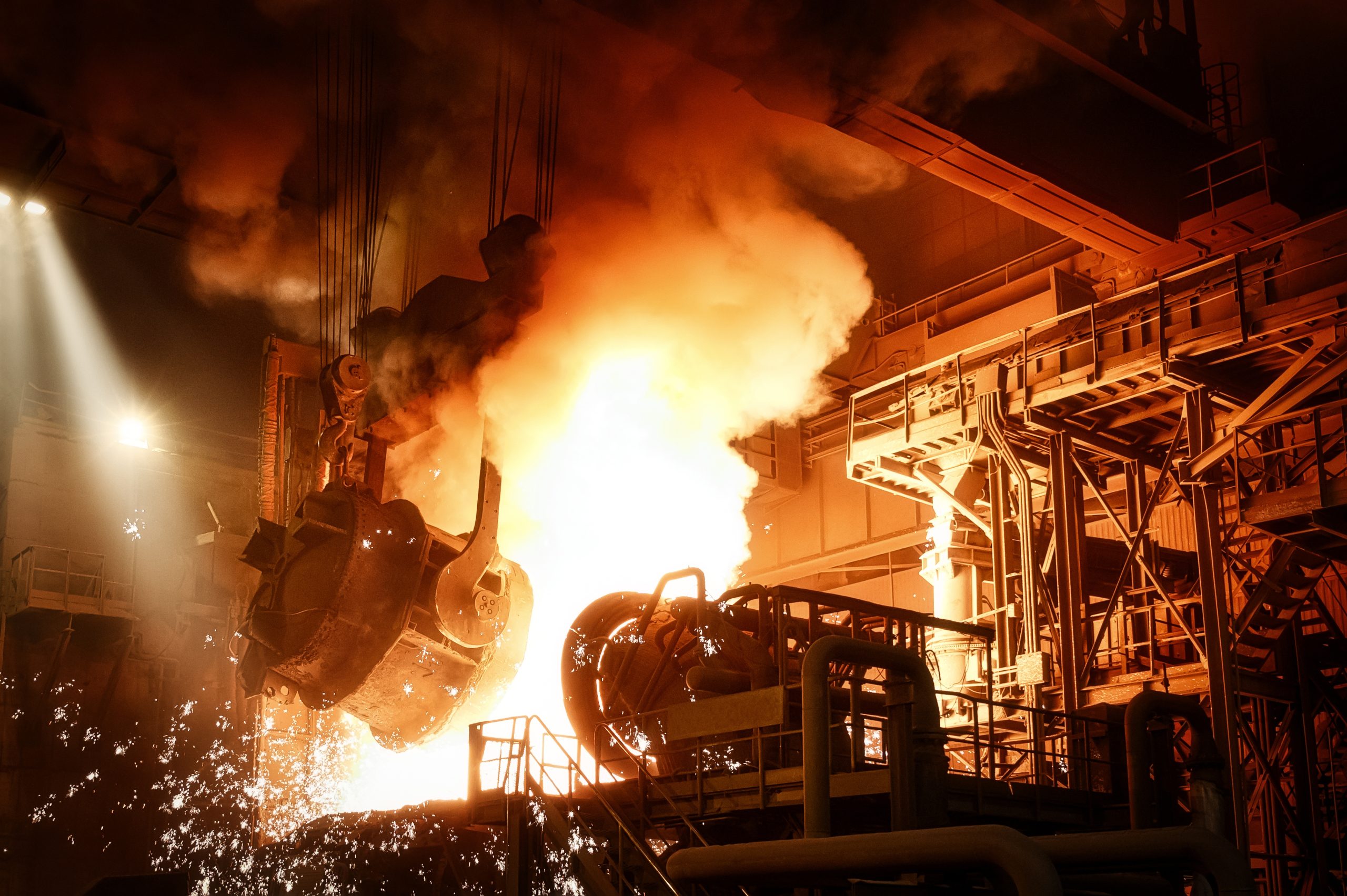
Operating conditions
In the steel industry, which is characterised by very high operating temperatures and harsh operating conditions, hydraulic fluids are essential for the operation of various machines and systems. In continuous casting plants, for example, they are used for lifting and positioning operations during steel processing. In rolling mills they power the hydraulic cylinders that control the movement of the rolls, which are essential for hot and cold rolling of steel, or in blast furnaces they control the opening and closing mechanisms of furnaces, the positioning of material loads and other critical functions.
Hydraulic fluids therefore perform several crucial tasks and, as they must ensure the efficient, safe and sustained operation of machines and hydraulic systems, protecting productivity, maintenance costs and the working environment, they must possess different properties:
- High oxidation stability: to ensure that the fluid maintains its properties over time without degrading at high temperatures and to prevent the formation of sludge and varnishes that can clog systems and reduce efficiency.
- Wear Protection: to safeguard critical components like pumps, valves, and motors, extending their useful life and reducing maintenance costs.
- Material Compatibility: fluids are tested for compatibility with the different materials used in machinery to prevent adverse chemical reactions that could lead to failures.
- Environmental Impact: in evaluating the environmental impact of the fluid, it is important that the product meets regulatory requirements for biodegradability and low toxicity.
- Water Separation Capacity: to avoid corrosion and damage to the system, thereby improving the overall reliability and efficiency of the machinery.
- Fire Resistance: the risk of fire is constantly present in the steel industry, with operations involving equipment in contact with molten metals, molten steel, and open flames. Depending on the base used in the hydraulic fluid’s formulation, there are different levels of fire resistance.
Introduction to Fire-Resistant Hydraulic Fluids
Choosing a mineral-based hydraulic fluid might seem the most immediate choice due to the highly competitive price and high performance of this type of solution. However, since it does not have a suitable safety level for a steel plant, it ends up representing a significant fire risk factor. In the event of a pipe rupture, mineral oil mists are extremely flammable, and once ignited, they cause bursts and flames and continue to burn because the mineral base itself acts as a fuel.
For the reasons listed above, to drastically reduce this risk situation, alternatives are available that reduce the possibility of ignition without compromising performance or productivity.
Fire-resistant hydraulic fluids are specifically designed to operate in high flammability risk environments where it is essential to reduce the likelihood of fire caused by hydraulic fluid leaks. Using the ISO 6743/4 classification, which divides Fire-Resistant fluids into different categories, Q8Oils has developed a Q8 Estin S according to operating conditions.
In fact, Q8Oils’ Value Proposition, which is reflected in the culture that guides its R&D activities, is embodied in the constant search for solutions that guarantee its customers increasingly high levels of performance, combined with a minimised environmental impact, and it is precisely in the perfect meeting of these two fundamental requirements that Q8Oils concentrates all its development work on its solutions.
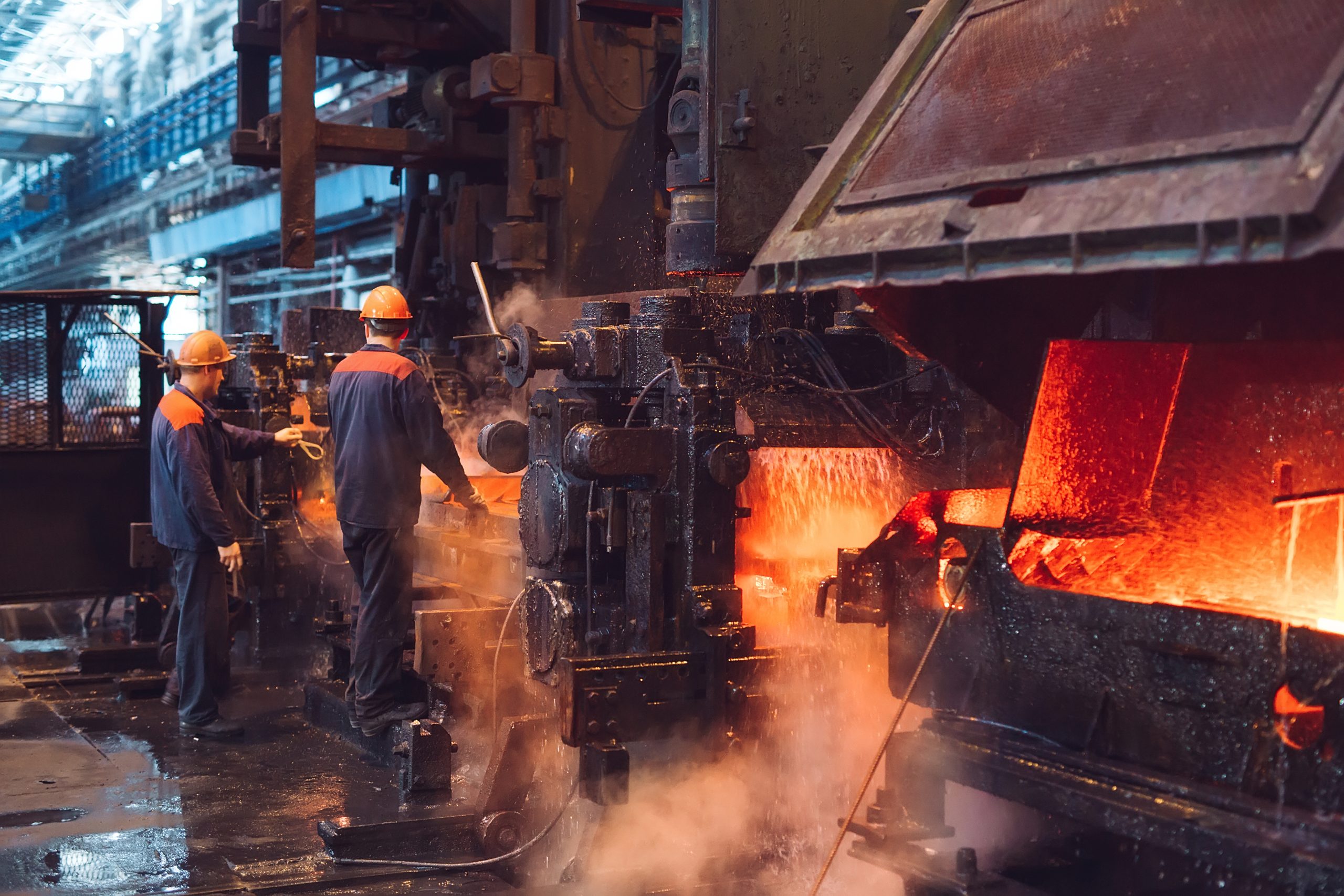
Synthetic ester-based fluids (HFDU):
Q8 Estin S
Q8 Estin S is the most environmentally responsible choice for steel plants because, thanks to its synthetic technology that does not support combustion and guarantees a very high Auto-Ignition Point, it has very high fire protection properties. Thanks to the combination of these characteristics, Q8 Estin S is also a product defined as self-extinguishing: this means that the fluid burns when exposed to a flame or other source of heat but, as soon as the ignition source is removed, it tends to extinguish quickly. Moreover, in the case of ignition, a so-called ‘short-flame’ combustion is generated. The distinction between a short flame and a long flame is very important: a short flame describes a flame of limited size, which remains close to the source of combustion and does not spread rapidly. In contrast, the long flame extends far from the source of combustion and flares up lightning fast. The long flame phenomenon describes the behaviour generated by the ignition of a mineral-based hydraulic fluid, and this characteristic is one of the factors that makes them so dangerous in steel plants.
In terms of performance, Q8 Estin S is on a par with mineral-based hydraulic fluids and, by virtue of the excellent thermal and oxidative stability it possesses, is suitable for applications with high operational stress and high temperatures. Compatible with a wide range of materials used in hydraulic systems (although it is always best to check carefully before any conversion or first insertion), it requires low maintenance and ensures long replacement intervals thanks to its resistance to oxidation and thermal degradation. With Q8 Estin S, the same performance is guaranteed as with mineral-based oils, but the health and safety profile is significantly increased, also with a view to the sustainability balance.
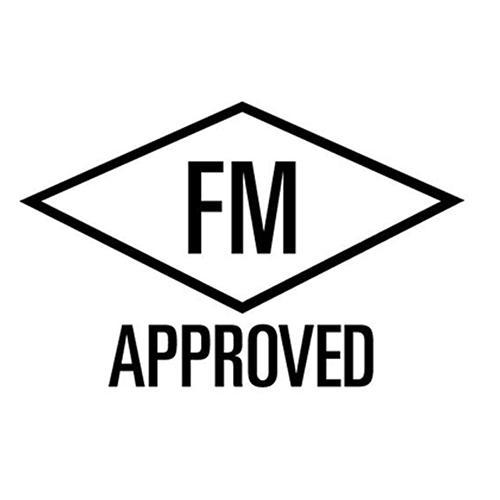
Factory Mutual Approval
Factory Mutual (FM) is the world’s most authoritative certification body on industrial risk assessment. Known for their reliability and rigorous testing standards, their goal is to ensure that certified products and services meet the most stringent occupational health and safety standards.
Q8 Estin S‘s high resistance to combustion has enabled it to pass FM Approval Class 6930 (Fire Performance of Industrial Fluids) tests and was awarded FM Approval Identification: 3038139, RR237890.
There are many benefits as a result of this certification:
- Reliability: ensures that fluids meet high performance standards, providing consistent and reliable operation in industrial applications.
- Safety: ensures that the oils are safe to use, reducing the risks associated with fluids such as fire, corrosion and system failure.
- Cost efficiency: by extending the life of industrial systems and reducing the need for frequent maintenance, FM-certified fluids help reduce overall operating costs.
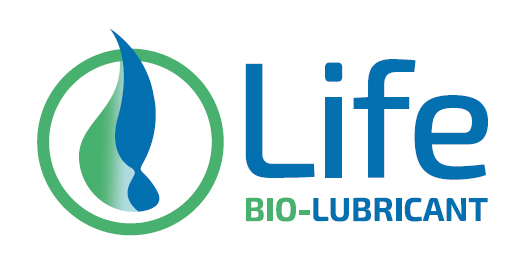
Biodegradability
Q8 Estin S is a truly excellent product in terms of environmental sustainability not only because of its very high fire resistance but also because of the high degree of biodegradability it possesses. A substance is considered biodegradable if it passes the OECD 301 B 28-day test by at least 60% and Q8 Estin S has achieved a minimum biodegradation of 85%.
Thanks to this outstanding result, if properly collected at the end of its life by specialised lubricant take-back companies and properly reprocessed, it can become a raw material for future production.
With this sustainable direction in mind, Q8Oils is part of a very important circular economy project called Life-Bio Lubricant, which is funded by the European Commission and aims to create a value chain in which, through the involvement of different partners, used organic ester-based fluids can be reused in the production of the lubricants themselves.
For more information on this topic, please refer directly to the dedicated website.
Conclusion
With a flash point above 310°C and a fire point at 360°C, Q8 Estin S is suitable for use in hydraulic circuits operating near flames and heat sources, protecting operators and the environment from fire hazards. Therefore, Q8 Estin S is recommended for foundries, die-casting processes, and the steel industry (chargers, continuous casting, furnaces, rolling mills, etc.). Similarly, its use is recommended in all plants near flames or at risk of fire.
In terms of performance, it guarantees excellent anti-rust, antioxidant, and anti-foam characteristics. Thanks to its high viscosity index, it ensures the best hydraulic control performance over a wide range of temperatures (however, it is recommended not to exceed 80°C). It has excellent compatibility with metals and elastomers, particularly with Viton™, Teflon, NBR, and polyurethanes seals. Finally, it is compatible with mineral oils and other fluids of the same nature; however, mixing is not recommended to avoid losing its typical properties.
Its a well-proven and continuously improving product, thanks to the experience accumulated from its use over more than 30 years in many applications and fire-hazardous situations in the steel industry (from blast furnace to hot strip mill).
The conversion of your hydraulic system from a mineral-based fluid to a synthetic ester-based fluid is not very complex and generally does not require modifications to the hydraulic unit. However, the transition must be carried out carefully with an expert.
Progressive checks not only concern the compatibility between fluids but also with other various elements: internal tank paints, seals, flexible hoses, valves, and pumps. Our procedure includes tests to demonstrate the degrees of compatibility between fluids of the same nature or different origins to make the transition as safe as possible.
It is also important to remember that there are various suppliers of synthetic ester-based fluids (HFD-U) and a wide range of products, but only a few have Factory Mutual approval, a necessary condition to obtain homologation from the majority of equipment manufacturers.
If you have any questions about the Q8 Estin range or fire-resistant hydraulic fluids, please contact us.




